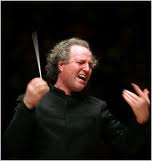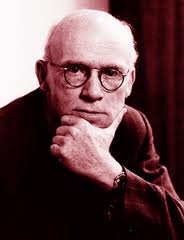- Two Thanksgiving Thoughts for the ACAPosted 10 years ago
- Shop til you Drop at the Healthcare Marketplace Part 2: Frustration!Posted 10 years ago
- An Early Casualty in the Affordable Care FightPosted 10 years ago
- Some Good News for a ChangePosted 10 years ago
A Novelty and a Debut in New York by Curtis Rittenhouse

Manfred Honeck, the music director of the Pittsburgh Symphony made a belated debut with the New York Philharmonic over the week-end. Honeck who has been in Pittsburgh since 2008 has a contract running there through 2020. Someone in Pittsburgh must like him. He began his career in his native Vienna as a member of the Vienna Philharmonic, so he comes with orchestra experience that should extend beyond mere baton waving. And so it proved at Avery Fisher Hall. The beauty part of the program was a suite he arranged from a longer orchestra piece by Walter Braunfels. Braunfels (1882 – 1954) was a Frankfurt-born post-Romantic in the Richard Strauss-Max Reger-Franz Schmidt-Erich Korngold-Alexander von Zemlinsky mold whose careers were quite screwed up by Hitler and his gang. Braunfels’s father was of Jewish parentage and though the composer was raised a Lutheran, this was enough to get him removed from all posts, banned and exiled to Lake Constance— an all too familiar story. He returned after the War as a professor in Cologne, but by then music had moved on to serialism and Braunfels’s ripe romanticism was considered hopelessly old hat.
 In the 1990’s when serialism was becoming old hat, several musicians like James Conlon and Honeck helped revive Braunfels’s music, though he is still unknown to even ardent concert-goers. Honeck’s reduction of Phantastiche Erscheinungen eines Themas von Hector Berlioz (Fantastic Apparitions of a Theme by Hector Berlioz) from 50 minutes to slightly over ten was a success because of the facility and invention of Braunfels writing. The Philharmonic’s performance seemed all that the composer might have wished for and more. I’d love to hear the entire score, based on Berlioz’s Song of the Flea from the Damnation of Faust. Much like Strauss or Schmidt, the music shimmers with colorful orchestration, chromaticism and occasionally humor. Honeck’s suite successfully whetted one’s appetite for more. It was also a further reminder that politics and music should never again become bedfellows— a warning to both politicians and composers.
In the 1990’s when serialism was becoming old hat, several musicians like James Conlon and Honeck helped revive Braunfels’s music, though he is still unknown to even ardent concert-goers. Honeck’s reduction of Phantastiche Erscheinungen eines Themas von Hector Berlioz (Fantastic Apparitions of a Theme by Hector Berlioz) from 50 minutes to slightly over ten was a success because of the facility and invention of Braunfels writing. The Philharmonic’s performance seemed all that the composer might have wished for and more. I’d love to hear the entire score, based on Berlioz’s Song of the Flea from the Damnation of Faust. Much like Strauss or Schmidt, the music shimmers with colorful orchestration, chromaticism and occasionally humor. Honeck’s suite successfully whetted one’s appetite for more. It was also a further reminder that politics and music should never again become bedfellows— a warning to both politicians and composers.
 From the obscure to the ultra-familiar, Jean-Yves Thibaudet gave a sparkling, fleet-fingered interpretation of the Grieg Piano Concerto well supported by Honeck and the Philharmonic. After intermission, Honeck led the orchestra through Beethoven’s Seventh Symphony giving it a full-throttle interpretation. There was no doubt Honeck knew this piece inside out and brought the audience enthusiastically to their feet at the end. One might have wished for more Braunfels and less Grieg and Beethoven, but the interpretation of the Seventh Symphony with all its dance rhythms was as good as any you are likely to hear. We hope Honeck will be returning in more unfamiliar German music of the 20th century. What about Karl Amadeus Hartmann, another conservative figure of the same time? Maybe not Mahler but worth an occasional hearing.
From the obscure to the ultra-familiar, Jean-Yves Thibaudet gave a sparkling, fleet-fingered interpretation of the Grieg Piano Concerto well supported by Honeck and the Philharmonic. After intermission, Honeck led the orchestra through Beethoven’s Seventh Symphony giving it a full-throttle interpretation. There was no doubt Honeck knew this piece inside out and brought the audience enthusiastically to their feet at the end. One might have wished for more Braunfels and less Grieg and Beethoven, but the interpretation of the Seventh Symphony with all its dance rhythms was as good as any you are likely to hear. We hope Honeck will be returning in more unfamiliar German music of the 20th century. What about Karl Amadeus Hartmann, another conservative figure of the same time? Maybe not Mahler but worth an occasional hearing.
At least it was not more Mahler, whom American orchestras need to bench for a few seasons. There is obviously interesting Twentieth Century German post-romantic music out there in some steamer trunk somewhere gathering dust, and this concert makes one want to hear more of it, epecially in such capable hands as Honeck and the Philharmonic.
Curtis Rittenhouse








